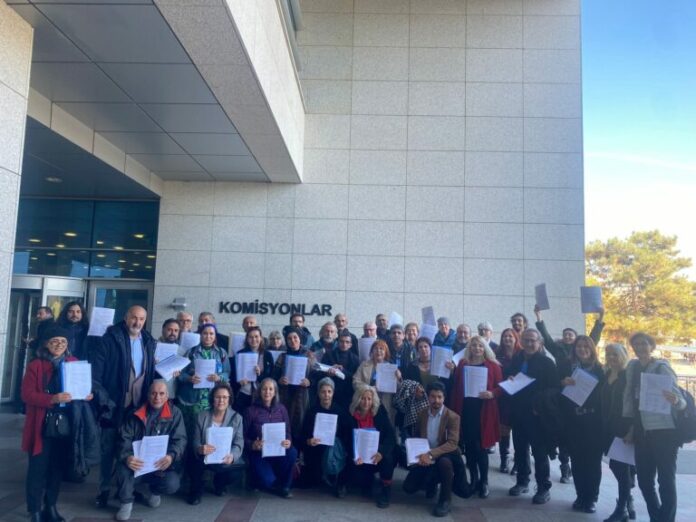Ecehan Balta
In Turkey, almost two years ago, a group of ecology activists from the Climate Justice Coalition started working on the issue of ecocide, just after the massive problem of mucilage in the Marmara Sea. At the International Ecocide Meeting held in Istanbul on November 3-4, 2022, the idea for a citizen’s ecocide law proposal was put on the agenda. Despite being interrupted by earthquakes and elections across Turkey over the last year, 28,328 wet signatures were collected and submitted to Parliament on November 11, 2023.
The term “ecocide” in mainstream literature refers to the extensive and severe damage, destruction or loss of whole ecosystems, often as a result of “human activity”. It encompasses actions that lead to significant harm to the environment, including pollution, deforestation, and other forms of ecological degradation.
Ecocide is not yet officially recognized as a crime under international law. Efforts have been made to push in this direction, including proposals to include it in the jurisdiction of the International Criminal Court (ICC). However, the legal status of ecocide varies from country to country. Some countries may have specific environmental laws that address various aspects of ecocide, but the definition and consequences can vary widely. Additionally, certain international treaties and conventions, such as the Rome Statute, contain provisions related to environmental crimes, but they may not explicitly label ecocide as a distinct offense. As a matter of fact, the ongoing efforts in 45 countries of the world have yielded their first results in Europe, and as of November 16, 2023, “severe destruction of nature” has been included in the scope of the crime of ecocide in the European Union regulations.
It is for sure that the deteriorating ecosystems and the depletion of natural resources underscore the inadequacy of existing legal mechanisms in tackling environmental crimes. While regulations exist, the enforcement and penalties often fall short, allowing perpetrators to exploit loopholes and evade accountability. Ecocide persists as a result of insufficient legal deterrents.
We know that the ecological destruction problems cannot be solved by criminalizing them. Recognizing that ecocide stems from the actions mainly of capital, fostering a collective awareness of its impact on the environment is pivotal. As socialist ecologists, wherever we struggle, we must recontextualize the term ecocide as “capital’s crimes against nature”, not human’s.
In Turkey, similar to the rest of the world, the primary culprits behind ecocide are the government and corporate entities. They are responsible for indiscriminately releasing hazardous materials like asbestos into the environment from earthquake debris. Furthermore, they pose a significant threat to both the ecosystem and human health by disposing introducing a mixture of rubble and asbestos into nature. Particularly in the Kurdistan region, they have organised executed deforestation and dam projects citing security reasons. Failing to regulate industrial waste, they transform rivers into toxic hazards. The litany of environmental offenses committed by the state and capital continues.
Still, we needed to take the step of drafting this bill, collecting signatures and submitting it to the Parliament so that society would know that ecocide is a crime.
Indeed, although we did not meet with any ruling parties (AKP and MHP) MPs, we received positive reactions from opposition MPs. Özgür Özel, the new leader of the main opposition CHP party, stated that ecocide should be considered a crime at their parliamentary group meeting during our visit.
We know that criminalizing ecocide in the capital’s war against nature is as impossible as eliminating gender inequality. Nevertheless, the re-invented concept of ecocide is a useful framework for people to realize that this is the capital’s war against nature.













